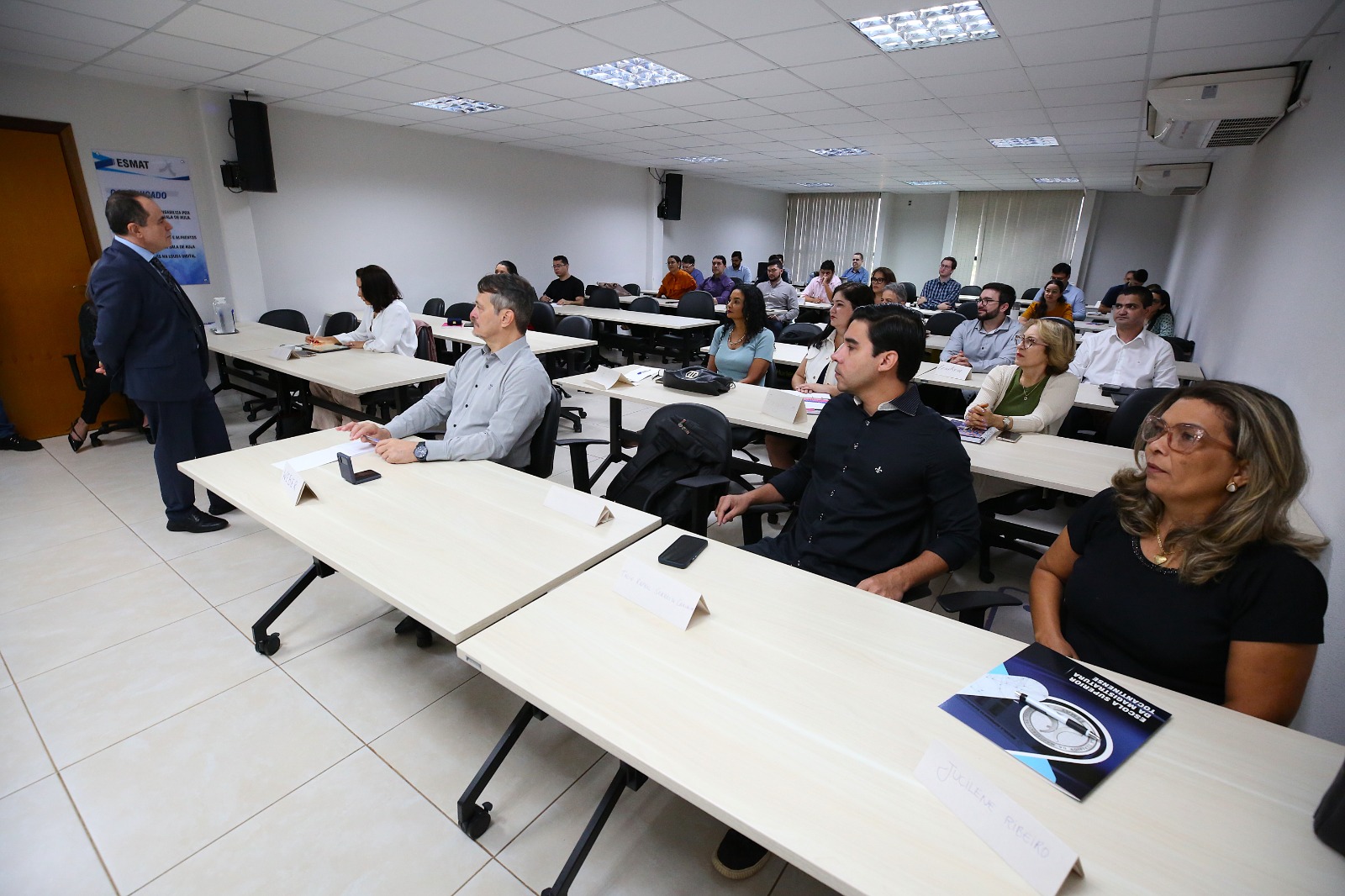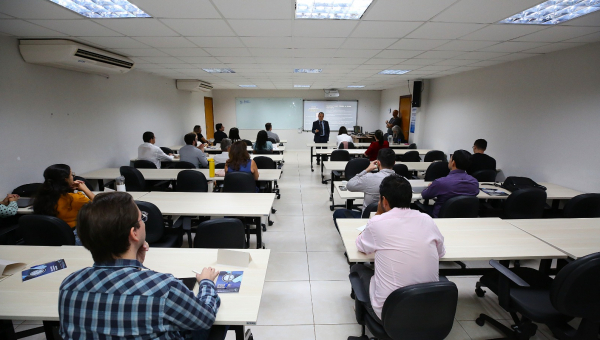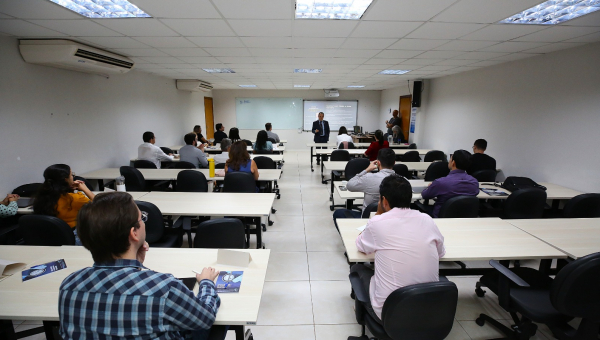
On Thursday (June 12th), the second class of the course on Digital Transformation in the Judiciary began, consolidating the institutional commitment to the continuing education of magistrates and civil servers in the face of the new technological demands of the contemporary Justice. Led by Professor and Justice Marco Anthony Steveson Villas Boas, general director of Esmat and president of the Permanent College of Directors of State Schools of the Magistracy (Copedem), the course brings together legal advisors from the Court of Justice of the State of Tocantins (TJTO) in a critical and interdisciplinary approach to the ethical, legal and cognitive impacts of emerging technologies in the judicial environment.
During his presentation, the justice presented the technological innovation trajectory of the Judiciary of the state of Tocantins, from the installation of the first computer equipment in the early 1990s, through the creation of its own procedural management systems, the adoption of eproc and, more recently, the insertion of Generative Artificial Intelligence tools.
Reflecting on the impact of the Covid-19 pandemic as an accelerator of this process, the professor recalled the immediate updating of the Judiciary of the state of Tocantins.
“The pandemic required us to implement, in record time, a robust infrastructure capable of ensuring the continuity of the judicial activity. Fortunately, the Judiciary of the state of Tocantins was prepared, and we were the first Court in the country to hold virtual sessions during that critical period," he said.
About the course
In addition to the technical aspects, the course reinforces the need to develop a critical and humanist awareness of the use of new technologies, incorporating reflections from thinkers such as Gregory Bateson, Pope Francis and Ailton Krenak, in order to broaden the debate on institutional responsibility, social impacts and socio-environmental justice in the digital age.
Participants are encouraged to understand not only the workings of intelligent systems and decision-making algorithms, but also the ethical, cognitive and cultural implications that challenge judicial activity on a daily basis in times of exponential transformation.




_thumbnail_thumbnail.jpeg)
_thumbnail_thumbnail.jpeg)
_thumbnail_thumbnail.jpeg)

_thumbnail.jpeg)
_thumbnail.jpeg)
_thumbnail.jpeg)

